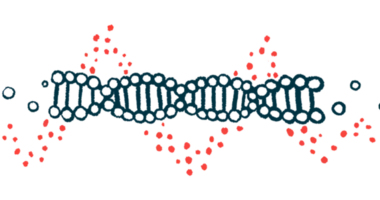First hemophilia B patients in Denmark treated with Hemgenix
Gene therapy now available in country under 2024 outcomes-based agreement

For the first time in Denmark, people with hemophilia B have been treated with the gene therapy Hemgenix (etranacogene dezaparvovec), according to an announcement from CSL Behring, the company that markets the therapy.
Hemgenix was cleared for use in the European Union in early 2023, following its approval in the U.S. in late 2022. CSL has since been working to make the gene therapy available to EU patients.
“The first patients in Denmark to receive Hemgenix … mark a historic moment,” Fredrik Sjöö, MD, PhD, head of medical affairs for the Nordic region at CSL Behring, said in a company press release. “This is what scientific progress in medicine is intended to achieve: improving the life of patients, in particular those with rare diseases, by providing innovative therapeutic options.”
Patients in Denmark are able to access Hemgenix via a 2024 outcomes-based agreement with the medical supply company Amgros. Under this agreement, the cost of Hemgenix is contingent on the therapy’s long-term benefits. In other words, if Hemgenix isn’t as effective as expected for a given individual, then the cost of the therapy for that person is reduced.
According to CSL, which markets the therapy under a 2021 licensing agreement with its original developer uniQure, this is the first such agreement for Hemgenix in Europe.
Patients in France were first in Europe to receive Hemgenix
Hemophilia B is caused by mutations in the gene that encodes a blood clotting protein called factor IX, known as FIX, which impairs its production or activity. Lack of functional FIX puts patients at an increased risk of experiencing frequent and prolonged bleeding episodes. Standard treatment for hemophilia B has historically relied on replacement therapies, in which a version of the FIX protein is regularly administered to patients to compensate for the missing protein.
A one-time treatment, Hemgenix instead delivers a working version of the gene encoding FIX to cells in the liver, where the protein is normally produced. The therapy aims to restore a patient’s ability to produce functional FIX and prevent bleeds.
This [milestone] means that recurring [replacement therapy] injections, repeated numerous times, can be replaced by a single infusion delivering the gene.
“Seventy-two years ago, it was discovered that inherited [hemophilia] B is caused by a genetic defect that deprives the liver of the capacity to produce enough functional factor IX. Today, treating [hemophilia] B by restoring this capacity to the liver has become part of clinical practice in Denmark,” Sjöö said. “This [milestone] means that recurring factor-concentrate injections, repeated numerous times, can be replaced by a single infusion delivering the gene.”
Hemgenix was conditionally approved in the European Union in 2023, and last year patients in France became the first in Europe to receive the gene therapy outside clinical trials. CSL said that it is now working with stakeholders to secure access to the therapy across Europe.
The hemophilia B gene therapy has also been approved in Australia, Canada, Switzerland, and the U.K.







